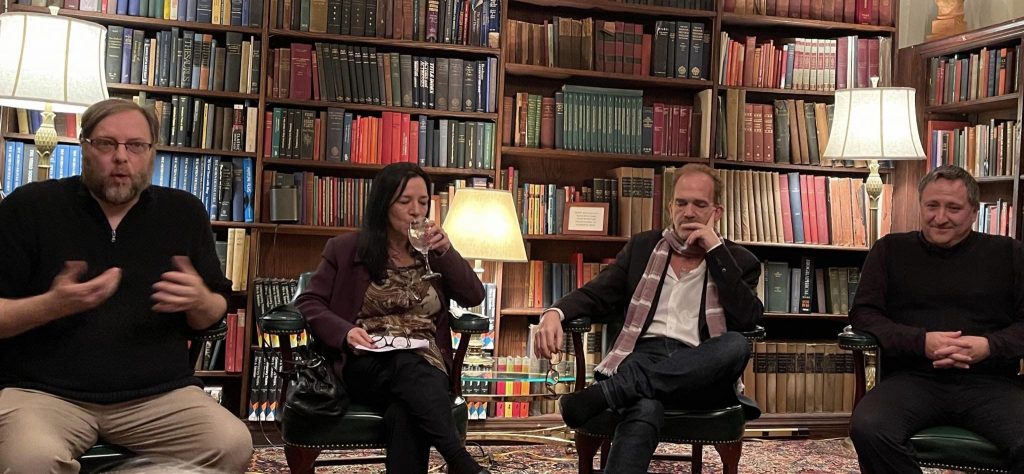This is a great opportunity to hear Dr. Lance Strate and Dr. Thom Gencarelli discuss the relevance of media. These two esteemed academics delve into the impact of technologies such as oral and written word, press, radio, television, internet, and even artificial intelligence in this video. Why is Media Ecology also important? What relationship does it have with General Semantics? If you’re interested in these topics, I invite you to watch the video.
Democracy and Media Ecology
The New York Society for General Semantics is proud to present a special event titled “Democracy and Media Ecology” at the historic Players at 16 Gramercy Park South in New York City. Our event will take place on Friday evening, January 27th between 6pm and 9pm, and we hope you’ll register and join us for what promises to be a lively and engaging discussion.

Date: 27 Jan 2023
Time: 6:00 PM – 9:00 PM
Location: The Players NYC – 16 Gramercy Park South, NY, NY
Media ecology entails the study of media as environments. Those things that go between us and what’s “out there” strongly influence the way we think, act, and communicate. Neil Postman famously called media ecology “general semantics writ large.” As our good friend Thom Gencarelli wrote in 2020, reviewing Postman’s role in both fields, “If general semantics considers our semantic environment, or context in which utterances take place, and the fact that the sense and sensibility and result of such utterances are to a great extent determined by that context, then the same holds true when we expand the concept of our semantic environment to consider our various media environments – wherein the nature of the medium, as a context, influences both the nature of utterances offered and the meanings we make from such utterances.”
This point is particularly valuable in attempting to understand how we shape our world through the choices we make in organizing and governing our affairs. Democracy is one system, method, or medium for engaging in that important work and therefore it’s important to consider the democratic shape of things as we seek to improve and progress as human beings. As democratic systems of various types become strained by the pace and intensity of our contemporary condition, we gather to consider what’s going on and what we might do about it.
Each January, the Executive Board of the Media Ecology Association holds its annual meeting in New York City, and the NYSGS is very pleased to have a number of principals of the MEA Board with us to share food, drink, and an evening of intellectual reflection.
Dr. Adriana Braga is Immediate Past President of the MEA and Associate Professor at the Social Communication Department at the Pontifícia Universidade Católica/Rio de Janeiro (PUC-Rio), Coordinator of the Digital Media Lab and researcher of the National Council for Scientific and Technological Development (CNPq, Brazil).
Dr. Thom Gencarelli is a Past President of the MEA, Treasurer of the NYSGS, and Editor-in-Chief of the Institute of General Semantics’ journal ETC: A Review of General Semantics. He is Professor and founding Chair of the Communication Department at Manhattan College.
Dr. Fernando Gutiérrez is the long time Executive Secretary of the MEA and the head of the Division of Humanities and Education at the Monterrey Institute of Technology and Higher Education (State of Mexico Campus). Dr. Gutiérrez is an author of several titles about media and information technologies; and part of the National System of Researchers in Mexico. His interest focuses on the exploration of different media environments.
Moderating the evening’s discussion is Dr. Michael Plugh, President of the MEA and the NYSGS. Dr. Plugh is Associate Professor in the Communication Department at Manhattan College.
We hope you’ll drop in to join us. Registration is free, but all attendees must be registered in order to gain admittance to the club. This includes any guests you might want to bring with you.
The program will take place in the Library on the 2nd floor of the club. Please note that, as an historic 19th century landmark, the site is not handicap accessible. Dress code is business casual and is strictly enforced, including no sneakers, shorts, ripped jeans, t-shirts).
